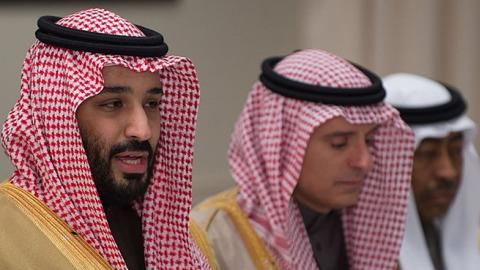Saudi Arabia used to be one of the most cautious players in the world of diplomacy. Not anymore. In the past three weeks, the Saudis have launched a coordinated diplomatic offensive against neighboring Qatar, hinted at new ties with Israel, scolded Pakistan, turned up the heat in their confrontation with Iran, and carried on a war of words with Turkey. Meanwhile, they continue to bomb Yemen to support their local allies in that country’s increasingly bitter civil war.
The Saudis are also bringing new gusto to domestic policy: The 2030 plan backed by Deputy Crown Prince Mohammed bin Salman is the most far-reaching and ambitious program for Saudi reform and restructuring ever seriously proposed. Privatizing the state oil giant Aramco (or at least part of it) and using the money to diversify the economy is, by Saudi standards, a revolutionary idea.
The jury is out on whether the Saudis’ new foreign and domestic policies will work, but no doubt something fundamental has changed in what used to be one of the world’s most cautious and slow-moving countries. The question is why. Some look to the deputy crown prince, a 31-year-old reformer elevated to his current role in 2015. But his rise is more a sign of the times than the main force driving change. After all, in the old Saudi Arabia, a mere 30-something never would have been allowed anywhere near the reins of power.
So what is behind the new Saudi activism? Fear. It’s an emotion that comes naturally to an oil-rich kingdom with a relatively small population in a neighborhood full of predatory rivals. For years fear made the Saudis cautious, since they felt they could take shelter behind a strong and confident America. Now they aren’t so sure.
In Riyadh, the Age of Insecurity began during President Obama’s tenure. Mr. Obama’s outreach to Iran—and his willingness to overlook its unprecedented regional aggression in his quest for a nuclear deal—left the Saudis feeling isolated and betrayed. As Iranian power spread across Iraq, Syria and Lebanon, Saudis concluded that the U.S. no longer saw Saudi security as part of its core national interest.
The Trump administration has sought to reassure the Saudis that the “tilt to Iran” has ended, but their insecurity runs deep. From Riyadh, and from many other world capitals, the erratic shifts in American foreign policy—from Bush to Obama to Trump—raise disturbing questions about the future. Who comes after Mr. Trump? Elizabeth Warren ? Sean Hannity ? As American politics becomes less predictable and more extreme, countries that have grounded their national strategy on the stability of an American alliance must reassess their options.
Then there is oil, an issue on which Saudis and Americans once saw eye to eye. With their enormous reserves, the Saudis believed that they were in the oil business for the long term. Unlike more aggressive players, who wanted to push oil prices as high as possible, the Saudis used their position as a “swing producer” to keep markets reasonably stable—something the U.S. appreciated. The Saudi goal was to keep their customers committed to oil long term and forestall heavy investment in alternative fuels.
The shale revolution is shifting this balance. The U.S. and Saudi Arabia are no longer allies in the oil market. American frackers, who can quickly increase or decrease output as prices change, are challenging Saudi Arabia’s role as the global swing producer.
Worse, from a Saudi point of view, the long-term dynamics of the oil market seem to be changing. There is much less talk of “peak oil” in the sense of peak production, and more talk of “peak demand.” Advances in energy efficiency and alternative power-generation are shifting the long-term demand curve for hydrocarbons. At the same time, Saudi Arabia’s rapidly growing population will place increasing demands on its economy. Riyadh worries that if oil becomes less profitable, it will be unable to keep its people happy.
All this suggests that the current turbulence in the Gulf is here to stay. If the Trump administration wants to restore tranquillity, it should think holistically about Saudi Arabia’s economic and security problems—and creatively about how this American alliance, a pillar of Middle East stability since World War II, can be renewed.


















